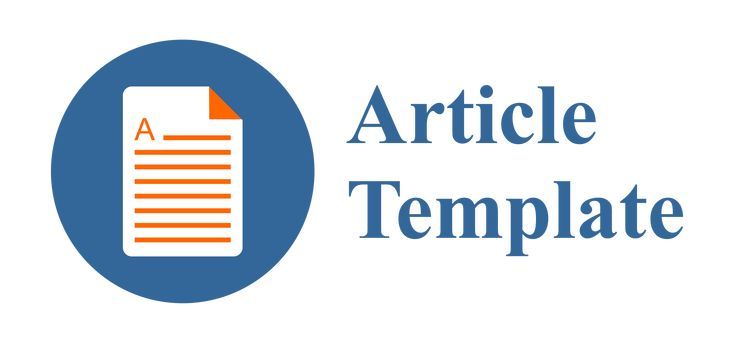ChatGPT sebagai Alat Bantu dalam Penulisan Karya Ilmiah Mahasiswa: Analisis Keterlibatan dan Kreativitas
DOI:
https://doi.org/10.29408/edumatic.v9i1.29496Keywords:
chatgpt, writing engagement, creativity, scientific writing, feedbackAbstract
The field of education is facing challenges due to the emergence of various artificial intelligence technologies, one of which is the latest version of ChatGPT-4o. This version is more human-like and feature-rich, making it an effective feedback tool for assisting in the preparation of scientific papers. However, its role raises concerns among educators, as it has the potential to affect student engagement and creativity. This study aims to analyze the impact of using ChatGPT on student engagement and creativity in writing scientific papers. A quantitative approach using a survey method was conducted with 170 students from the Information Technology Systems Education program at a state university in Indonesia. Data were collected through a 29-item questionnaire using a four-point Likert scale to minimize ambiguity in respondents' answers. The data were then analyzed using descriptive and inferential statistics. Based on the results of the coefficient of determination analysis, ChatGPT usage was found to influence writing engagement by 25.3% and creativity by 8.10%. In addition to providing corrections, ChatGPT also offers suggestions and generates new ideas, enhancing interactive participation in the writing process. However, it may reduce students' reliance on more valid feedback sources, potentially impacting engagement and decreasing creativity in writing. These findings highlight the importance of ethical awareness among students and the need for educational institutions to develop strategies to mitigate the negative effects of ChatGPT in scientific writing.
References
Fiialka, S., Kornieva, Z., & Honcharuk, T. (2024). The use of ChatGPT in creative writing assistance. XLinguae, 17(1), 3–19. https://doi.org/10.18355/XL.2024.17.01.01
Godwin-Jones, R. (2022). Partnering with Al: Intelligent Writing Assistance and Instructed Language Learning. Language Learning & Technology, 26(2), 5-24.
Janet, A., & Jennifer, F.F. (2024). Generative AI: Student Perception on ChatGPT Prompt Feedback in Post-Secondary Online Education. Proceedings of the World Conference on Social Sciences and Humanities, 1(1), 1–15. https://doi.org/10.33422/shconf.v1i1.495
Kim, T.W. (2023). Application of artificial intelligence chatbots, including ChatGPT, in education, scholarly work, programming, and content generation and its prospects: a narrative review. Journal of Educational Evaluation for Health Professions, 20, 1-8. https://doi.org/10.3352/jeehp.2023.20.38
Koga, S. (2023). The Integration of Large Language Models Such as ChatGPT in Scientific Writing: Harnessing Potential and Addressing Pitfalls. Korean Journal of Radiology, 24(9), 924–925. https://doi.org/10.3348/kjr.2023.0738
Lee, Y. H. (2023). Analysis of College Students' Perception about Generative Artificial Intelligence ChatGPT. A Treatise on The Plastic Media, 26(4), 46-55. https://doi.org/10.35280/KOTPM.2023.26.4.6
Murcahyanto, H. (2023). Penerapan Media Chat GPT pada Pembelajaran Manajemen Pendidikan terhadap Kemandirian Mahasiswa. Edumatic: Jurnal Pendidikan Informatika, 7(1), 115–122. https://doi.org/10.29408/edumatic.v7i1.14073
Nalendra, A. R. A. (2021). Statistika Seri Dasar Dengan SPSS (PDF ed.). Bandung: Media Sains Indonesia.
Nashir, M. H., Wirakusumah, T. K., & Erlandia, D. R. (2024). Hubungan Penggunaan ChatGPT Dengan Pemenuhan Kebutuhan Mahasiswa. Filosofi: Publikasi Ilmu Komunikasi, Desain, Seni Budaya, 1(1), 129-139. https://doi.org/10.62383/filosofi.v1i1.57
Nasution, K.Y., Sihite, R.A., & Hartati, R. (2024). Exploring the Role and Benefits of ChatGPT AI in Enhancing Students’ Fiction Writing Literacy: Insights from Learner Experiences. Fonologi: Jurnal Ilmuan Bahasa Dan Sastra Inggris, 2(4), 141–153. https://doi.org/10.61132/fonologi.v2i4.1219
Praditya, A. Y. (2023). Pengaruh ChatGPT Dalam Proses Pembelajaran Mahasiswa Ilmu Komunikasi di Universitas Esa Unggul Tangerang. Triwikrama: Jurnal Ilmu Sosial, 6(9).
Sedaghat, S. (2024). Plagiarism and Wrong Content as Potential Challenges of Using Chatbots Like ChatGPT in Medical Research. Journal of Academic Ethics. https://doi.org/10.1007/s10805-024-09533-8
Shidiq, M. (2023). The Use of Artificial Intelligence-Based Chat-GPT And Its Challenges for The World of Education; From the Viewpoint of The Development of Creative Writing Skills. In Society and Humanity, 1(1), 353-357.
Sugiyono. (2021). Metode Penelitian Kuantitatif Kualitatif dan R&D (Sutopo, Ed.; Ed. 2. Cet.3). Bandung: Afabeta.
Teng, M. F. (2024). “ChatGPT is the companion, not enemies”: EFL learners’ perceptions and experiences in using ChatGPT for feedback in writing. Computers and Education: Artificial Intelligence, 7, 100270. https://doi.org/10.1016/j.caeai.2024.100270
Veddayana, C., Romadhon, S., Aldresti, F., & Suyono, S. (2023). Rasionalitas Implementasi Chat GPT dalam Pembelajaran Keterampilan Menulis Karya Ilmiah. GHANCARAN: Jurnal Pendidikan Bahasa Dan Sastra Indonesia, 443-452.
Widjaya, F.A., Utamandarya, R.B., Dharmo, V.A., & Febrianti, L.Y. (2024). Dampak Penggunaan ChatGPT terhadap Proses Pembelajaran Mahasiswa Jurusan Business Engineering di BINUS ASO. Jurnal Ilmiah Sains Dan Teknologi, 2(7), 11–18.
Yunarzat, E., Sida, S. C., & Kasman, K. (2024). Pengaruh Penggunaan ChatGPT terhadap Motivasi Belajar Siswa di Sekolah Menengah Kejuruan. Edukatif: Jurnal Ilmu Pendidikan, 6(2), 1607-1626.
Zhai, X. (2022). ChatGPT: Artificial intelligence for education. Supporting Instructional Decision Making: The Potential of An Automatically Scored Three-Dimensional Assessment System, 1-18.
Zhang, C., Zhang, C., Li, C., Qiao, Y., Zheng, S., Dam, S. K., ... & Choi, J. (2023). One small step for generative ai, one giant leap for agi: A complete survey on chatgpt in aigc era. arXiv 2023. arXiv preprint arXiv:2304.06488.
Downloads
Published
How to Cite
Issue
Section
License
Copyright (c) 2025 Yuliana Sventy Yasmine, Rizki Hikmawan

This work is licensed under a Creative Commons Attribution-ShareAlike 4.0 International License.
All articles in this journal are the sole responsibility of the authors. Edumatic: Jurnal Pendidikan Informatika can be accessed free of charge, in accordance with the Creative Commons license used.

This work is licensed under a Lisensi a Creative Commons Attribution-ShareAlike 4.0 International License.




